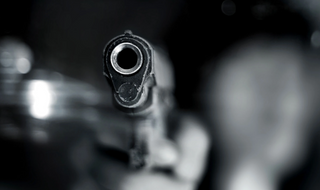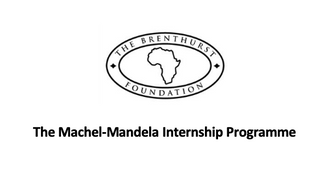News
Murder we Vote? Arresting South Africa’s Slide into a Failed State Anarchy
The scale of South Africa’s murder problem is truly horrific – more than three times more die per 100,000 in this country than in African nations such as Nigeria, Congo and Ethiopia, all of them countries fighting low-intensity wars.

Director, The Brenthurst Foundation

Research Director, The Brenthurst Foundation


The latest South African crime statistics make for grim reading. The Minister of Police, Bheki Cele, announced that in the last three months of last year no fewer than 7,555 people were murdered, 3,144 of them by firearms. To put this in perspective, some 7,199 civilians are believed to have died during the first year of Russia’s invasion of Ukraine, a conventional, high-intensity conflict involving indiscriminate missile attacks on blocks of flats and the site of gruesome executions, which has captured global media attention.
Not so much South Africa and its blight of violence, to which the world has apparently become numbed and the population seemingly inured. The costs, however, are very real.
The scale of South Africa’s murder problem is truly horrific – more than three times more die per 100,000 in this country than in African nations such as Nigeria, Congo and Ethiopia, all of them countries fighting low-intensity wars. Hit squads appear to operate with impunity across South Africa, with the police either helpless, or worse. In 2022, some 30 people a day were shot and killed with firearms – 10,950 for the year.
While interpersonal violence and murder are alarming, they are but the tip of an iceberg riding a tidal wave of crime, to mix a metaphor. The rise of organised crime is truly astonishing. Perhaps South Africa does have a lot in common with Russia, after all.
Companies such as Anglo American, Glencore and Sibanye Stillwater are regularly shaken down for up to 30% of their procurement spending, money which must now go to unskilled operators who essentially take it as loot, providing very few of the “services” they are supposedly offering.
It is not just shakedowns, however.
Earlier this year, Neal Froneman of Sibanye Stillwater was quoted by Business Maverick as saying:
“Crime has got worse … illegal mining is out of control. I am talking about people arriving with heavy machinery to open pits on our tenements in Rustenburg (chrome). We have confiscated excavators and front-end loaders. The scale has got worse in just the last six months.”
The costs of providing security and making good on criminal losses plus rolling blackouts are estimated on the platinum mines to subtract as much as 6% of revenue, in the process discounting the country’s business.
A “coal mafia” is stealing from Eskom, contributing to South Africa’s power woes. The Sunday Times revealed how “coal loads are swapped in Mpumalanga coalfields for lower-grade coal or discarded coal by-products, which are inefficient and can damage power stations”.
A former operative was quoted as saying: “One night almost 2,000 tons of RB1 (high-grade) coal was dropped off. You can do the sums. To give you an idea, 2,000 tons fills 65 trucks.”
A “construction mafia” is now almost institutionalised in the building industry. The phenomenon has been well-documented by the Global Initiative Against Transnational Organised Crime. “These people have organised themselves into groups known as ‘local business forums’ and invaded construction sites across the country, demanding money or a stake in development projects in what can arguably be described as systemic extortion. These activities have been fuelled by the weak response from the state, allowing them to expand their activities. In 2019, at least 183 infrastructure and construction projects worth more than R63-billion had been affected by these disruptions across the country. Since then, invasions have continued at construction sites across South Africa.”
Much has been written about South Africa’s transport mafia, which has two “branches”. The first emanates from the taxi industry where mafia-style killings over routes are so commonplace they hardly make news any more. Taxi bodies also prevent buses from travelling on routes that compete with them. Intercape was last year “ordered” not to run certain routes and even to “put its prices up” so that it did not compete, the subject of a court case.
A second transport mafia exists in commercial trucking, with highways being blocked. This extends to coal trucking contracts, given the move to smaller producers and myriad hauliers for the power stations. The giant 4,200MW Kendall power station, for example, reportedly now depends on half of its 14-million ton annual coal feed from trucked-in supplies, whereas previously this volume was much more cheaply and efficiently conveyed directly to the mine from the local pit.
The demand for contract killers is high. Just last week, the musician Kiernan “AKA” Forbes was shot on a Durban street by a hitman. Whistle-blowers such as Babita Deokaran have been assassinated for calling out corruption in the health department.
It was reported at the start of February that no fewer than 22 people were gunned down in four mass shootings – 14 of them in one bloody night.
If demand is high, so is the supply of hitmen who realise they can kill with impunity. As a result, a contract killing now costs as little as R2,600. The journalist and author Nathi Olifant, who wrote Blood, Blades and Bullets: Anatomy of a Glebelands Hitman, explained in an interview: “It’s an easy way of getting rich. If you have money and know where to go, it’s easy … You might have to pass some layers because they are very cautious. Usually, you meet with a stranger, exchange cash, or you deposit the money either in a trash can, or they send a runner that you won’t even see inside a vehicle.”
It is also easy to get away with, as the police appear wholly unable to investigate and prosecute the proliferating killings, never mind preventing them.
Why is this so? The policing failure has many causes. Chief among these is the failure to develop a modern, capable police service. Such a service requires three elements, which are lacking at present:
- A professional leadership unencumbered by party politics and capable of managing a large institution. The present leadership – from Bheki Cele (previously fired for dodgy property deals) to National Police Commissioner Lieutenant-General Sehlahle Fannie Masemola – are manifestly out of their depth.
- A highly skilled, motivated and properly resourced entity capable of quickly and thoroughly investigating complex financial crimes.
- An independent and professional intelligence service that can predict and interdict the actions of organised criminal networks.
Without these elements, the police are unable to demonstrate that there are consequences for serious, organised crime, and the parallel “mafia state” behind them becomes emboldened, from its wealthy dons to its conscienceless hitmen.
The question that looms large is why, after decades of rampant organised crime, the government has failed to make these interventions, choosing instead to go for leaders who bluster about the need for police to “shoot to kill” instead of dealing with the real core of the rot.
A charitable interpretation would be that this is incompetence and cadre deployment at its worst. In this scenario, the succession of crooked police commissioners and dodgy ministers is – unfortunately for the nation – the best that the ANC has to offer. There is some evidence for this. Marcus Jooste, the Steinhoff swindler, has not faced prosecution and does not (until someone shows otherwise) enjoy political cover.

A less generous view is that criminal networks are embedded in the structures of political power and have actively controlled the prosecution domain. There is some evidence for this too under the rule of former President Jacob Zuma, where the prosecution service was infiltrated by cadres loyal to him who filibustered legal action against his networks.
As the hope of the police ever rolling back serious crime recedes like the sea before a tsunami, the answer must come from elsewhere. If there is a glimmer of hope, it is to be found in the NPA under Shamila Batohi and the work of the new Independent Investigating Directorate, which has begun to turn the screws on State Capture cronies. She has called for the directorate to be made a permanent structure, which would give it the status of the disbanded Scorpions. “The methodology will certainly be the same, but the one big difference is that this is specifically, the ID will investigate corruption matters and not the broader mandate of organised crime that the Scorpions had,” she said in November 2022. Shivers must have run up a lot of spines.
The decision about essentially recreating the Scorpions – this time focused on organised crime – is for Parliament to decide and so, once again, South Africa’s best hope of turning the tide must get the blessing of the ANC. This is the party that somewhat gleefully disbanded the Scorpions after it began to look too closely to the activities of its cadres just over a decade ago.
Will the ANC allow the emergence of an entrenched, independent directorate, effectively working outside the police service, or will the idea drown in a cesspool of political intrigue as threatened ministers refuse to act? Has the critical mass of compromised cadres reached a point where such a structure threatens too many in the party for it be permitted?
The Justice Minister, Ronald Lamola, said earlier this month: “To ensure that the independence and security of tenure of the incumbents in the ID is strengthened, we have a new bill which is undergoing consultative processes between relevant departments.” And so it’s over to the relevant departments, read Police Minister Bheki Cele.
The economic and social consequences of SA’s levels of violence can only trend towards lower investment, fewer jobs and thus greater instability.
Take Zimbabwe. The Rhodesian War, or Second Chimurenga, which was waged from 1964 until 1979, and cost an estimated 20,000 lives, including that of some 10,000 guerrillas and 1,361 Rhodesian security force members. The level of violence, and the radicalisation and dehumanisation produced, is viewed as being responsible for the atrocities and policies perpetrated by Robert Mugabe since, including the Gukurahundi – literally “the early rain which washes away the chaff before the spring rains” – against his ethnic rivals in Matabeleland, which lasted from 1982 until 1987 and cost about 20,000 civilian lives.
Last year South Africa recorded three to four times more murders than the numbers killed by the Rhodesian security forces in 15 years of deliberate, armed conflict, a war roundly condemned and sanctioned by the international community. The political consequences of Zimbabwe’s violence have lingered disastrously for more than 40 years since.
Is this what we should expect from South Africa’s own current murderous war?
This article originally appeared on the Daily Maverick
Photo: iStock

